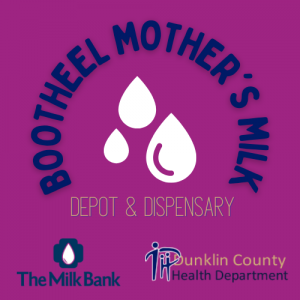Human milk is especially important for premature or sick babies, who are more likely to develop devastating intestinal infections if they are fed formula instead of human milk. One in nine babies is born preterm and fewer than half of moms delivering prematurely are able to provide their babies with breastmilk. Through donor milk, these preterm babies are still able to receive the benefits of breast milk to help them grow and thrive. Research shows that providing donor milk to these tiny and fragile babies prevents necrotizing enterocolitis (NEC), a condition that attacks the intestinal tract, damaging or destroying it. NEC frequently requires emergency surgery to remove part of the intestines. Emergency surgery on a preterm infant is difficult and dangerous. Human milk feeding reduce the rate of NEC by 75%. Human milk matures the intestinal tissue, fights infections, and promotes brain development while providing ideal nutrition.
Yes. Human milk banks follow strict screening, processing, and dispensing standards established by the Human Milk Banking Association of North America to ensure the safety of donor human milk. These standards have been established with the advisement of the Centers for Disease Control and Prevention, the US Food and Drug Administration, and the blood and tissue industries. Potential milk donors provide complete medical and lifestyle histories, and undergo blood tests for HIV, HTLV, syphilis, and hepatitis B and C similar to the screening process used at blood banks. Donated milk is then tested for bacteria and nutrients, and pasteurized to kill any bacteria and viruses. Before dispensing, bacteriological testing is repeated to verify that all bacteria are destroyed.
Frozen donor milk is thawed, nutritionally analyzed, cultured, pooled and poured into bottles, then pasteurized at 62.5 C in a shaking water bath or automatic pasteurizer. Pasteurized milk is quick-cooled, then frozen at -20 C. Microbiological cultures are obtained by an independent laboratory from individual donors' deposits prior to pasteurization and pooling, and from each batch of milk after pasteurization. This is done to verify that no heat-resistant pathogens are present before pasteurization, and that there is zero growth of bacteria after the heating process.
Research shows that NEC increases a baby's length of hospital stay by two weeks at an additional cost of $128,000 to $238,000. In addition, reduction in other complications such as sepsis through the use of donor human milk instead of formula means that the baby goes home sooner with fewer medical issues and stays healthier.
Once a mother has been screened and approved to donate milk by a milk bank, she can drop her donation off at a milk collection site, called a milk depot. The depot will safely store and ship her donation to a milk bank. The Bootheel Mother's Milk Depot & Dispensary located at the Dunklin County Health Department provides a convenient location for Southeast Missouri mothers to drop off their donations. The Bootheel Mother's Milk Depot and Dispensary is affiliated with The Milk Bank (TMB) located in Indianapolis, IN. Milk collected locally is shipped to TMB for processing, pasteurization and distribution. TMB makes it a priority to provide this donated and safely processed milk to Missouri hospitals and families.
Breastmilk shortage affects the lives of the most vulnerable babies, therefore, there's always a great need for milk donations. breastfeeding mother's that make extra milk beyond their own babies needs have an amazing opportunity to donate milk that could save the life of a fragile newborn. It's a gift that lasts a lifetime. We thank all of our donors for their generous donations.
For additional information and to get started on becoming a donor, please visit https://www.themilkbank.org/donate-milk-application/. Once the screening process is complete, donors are referred to the Bootheel Mother's Milk Depot & Dispensary to make an appointment for milk donation drop off. There is no cost to the donor.
The Milk Bank has a unique ability to provide families in our community with a readily available source of pasteurized donor human milk (PDHM). Quick access to PDHM allows parents of healthy newborns to supplement with human milk instead of formula, providing babies with a healthy start and parents with peace of mind. The Bootheel Mother's Milk Depot & Dispensary and the The Milk Bank is available to help bridge the gap between leaving the hospital and a successful breastfeeding routine. If you need milk for short-term use, you may purchase up to 40 ounces without a prescription. For infants that require more than 40 ounces, a physician’s prescription is required and should include the diagnosis, and the approximate amount of PDHM needed on a daily/weekly basis. Prescriptions are subject to renewal based on infant age and medical needs. To purchase breastmilk for your baby, please visit https://www.themilkbank.org/recipient-app/. Financial assistance is available through the Medical Relief Fund.
